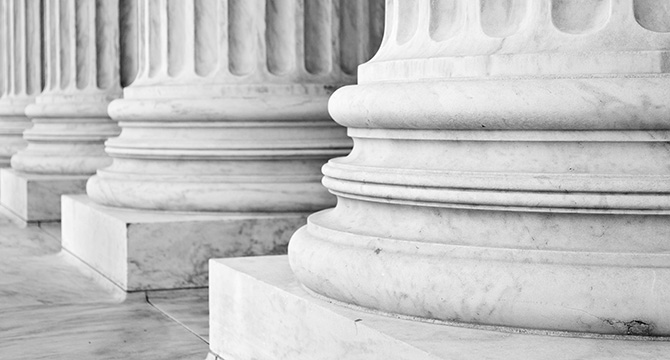
Today in Aqua Products, Inc. v. Matal, a fractured Court of Appeals for the Federal Circuit (CAFC) sitting en banc decided to flip the burden of persuasion onto petitioners in IPR proceedings to show that an amendment is not patentable, removing from patent owners the burden previously placed upon them by the PTAB. In its conclusion, the court states as follows:
“The only legal conclusions that support and define the judgment of the court are: (1) the PTO has not adopted a rule placing the burden of persuasion with respect to the patentability of amended claims on the patent owner that is entitled to deference; and (2) in the absence of anything that might be entitled deference, the PTO may not place that burden on the patentee.”
Although the court relied in part on the “unambiguous” language of section 316(e) stating that, “[i]n an inter partes review instituted under this chapter, the petitioner shall have the burden of proving a proposition of unpatentability by a preponderance of the evidence,” it also cited to the legislative history in support of its decision, noting that “the PTO has more than once acknowledged that use of the broadest reasonable interpretation standard is only appropriate when patent owners have the opportunity to amend” and further pointing out how frequently the right to amend was invoked during the legislative history to justify applying broadest reasonable interpretation to the claim language.
In its remand instructions, the court stated as follows:
“The matter is remanded for the Board to issue a final decision under § 318(a) assessing the patentability of the proposed substitute claims without placing the burden of persuasion on the patent owner. The Board must follow this same practice in all pending IPRs unless and until the Director engages in notice and comment rulemaking. At that point, the court will be tasked with determining whether any practice so adopted is valid.”
The court declined to answer the second question posed in its initial en banc order: whether or not the Board is allowed to sua sponte raise an issue of unpatentability with respect to an amended claim. On this question, the court decided to reserve judgment for another day because the record here does not present this precise question.
The CAFC issued one other decision recently aimed at loosening the PTAB’s restrictions on amendment: Nike v. Adidas, which is discussed in our earlier posting “CAFC Partially Relaxes Idle Free Requirements for Amendments During IPR“.
While this decision is good news for patent owners, it may end up at the Supreme Court given the divided opinions of the Federal Circuit judges. In its conclusion, the court candidly acknowledges the difficulty of reaching its decision:
“This process has not been easy. We are proceeding without a full court, and those judges who are participating disagree over a host of issues. As frustrating as it is for all who put so much thought and effort into this matter, very little said over the course of the many pages that form the five opinions in this case has precedential weight.”
Furthermore, while it will be a procedural advantage for patent owners not to have to carry the burden of persuasion any more, petitioners still have a full menu of options for attacking patentability of an amended claim. We will have to wait and see whether flipping the burden of persuasion will actually change the outcomes of motions to amend, which so far have had only around a 5% chance of success for patent owners (see p. 4 of the PTAB’s Motion to Amend Study).

